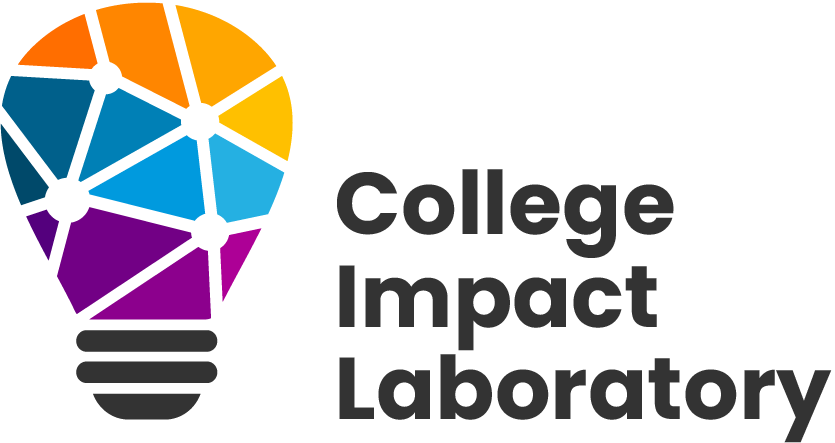
Upcoming Presentations
AERA
American Educational Research Association
Join our faculty, staff, graduate research assistants, and CoIL affiliates as they share their research findings at the Annual AERA Conference held in Denver, Colorado from April 23-27, 2025.
Impact of Postsecondary Education on Current and Former Foster Youth: A Scoping Review
Kara Graham and Chairs Stanek
4/23/2025 | 2:30 PM – 4:00 PM MDT| The Colorado Convention Center, Floor: Ballroom Level, Four Seasons Ballroom 4
Abstract: This scoping review examines existing publications to assess the state of research about the impacts of postsecondary education on current and former foster youth. Results revealed that between 2000 and June 2024, 59 quantitative studies identified one or more postsecondary outcome areas related to enrollment, academic, developmental, and post-program effects for current and former foster youth. Findings indicate the need for updated consolidated evidence on several topics regarding how postsecondary education impacts current and former foster youth, as well as increased specificity and uniformity in the foster youth population identifiers used for welfare status, age, gender, race, and ethnicity.
Enhancing Innovation Capacities in Interdisciplinary STEM Education: Faculty’s Perspectives in Hybrid Teaching
Yun-Han Weng and Dr. Emily Creamer
4/25/2025 | 3:20 PM - 4:50 PM MDT | The Colorado Convention Center, Floor: Ballroom Level, Four Seasons Ballroom 4
Abstract: Hybrid learning models have gained importance in higher education, particularly in STEM fields, due to technological advancements and the COVID-19 pandemic. This study explores faculty perspectives on the effectiveness of hybrid learning in fostering STEM students' innovation capacities. Despite having robust technological infrastructure, there is a need for better pedagogical integration to maximize these tools' potential. Faculty reported challenges in engaging online participants, highlighting the need for innovative teaching strategies and deeper immersion in the online learning experience. The study underscores the role of interactive technologies in creating inclusive, collaborative environments and reveals a gap in faculty training for optimizing hybrid teaching. This research informs the development of effective pedagogical frameworks for hybrid STEM education.
Assessing the Validity of Measuring Intention to Innovate Among First-Year PhD Students
Susannah Townsend, Yun-Han Weng, and Dr. Matthew Mayhew
4/26/2025 | 1:30 PM - 3:00 PM MDT| The Colorado Convention Center, Floor: Ballroom Level, Four Seasons Ballroom 4
Abstract: Given the importance of innovation for economic and societal growth, higher education stakeholders are eager to develop the capacity to innovate among postsecondary students. To effectively research innovation capacity and development, the ability to robustly measure various aspects of this capacity – including students’ intention to innovate – across different subpopulations of students is crucial. We used confirmatory factor analysis and measurement invariance testing to assess the validity of a four-item model for intention to innovate among first-generation college students (FGS) seeking doctorates. Our findings suggest that the measurement model for intention to innovate can reliably be used for research investigating the intention to innovate of PhD students regardless of parental education, or to detect group differences between FGS and continuing-generation students.
Women’s Voices in College CTE: Themes from a Phenomenological Study of Automotive Technician Trainees
Susannah Townsend and Dr. Emily Creamer
4/27/2025 | 9:50 AM - 11:20 AM MDT| The Colorado Convention Center, Floor: Ballroom Level, Four Seasons Ballroom 1
Abstract: Women-identifying students are a minority within many career and technical education (CTE) programs in science, technology, engineering, and mathematics (STEM) fields. In the automotive industry, college CTE programs enroll very few women. Understanding what these women experience during their academic and field work journeys through the program will help institutions and the automotive industry make meaningful changes to the CTE programs that serve as direct pipelines to a very gender-lopsided workforce. As we showcase the findings from a phenomenological study of women enrolled in a postsecondary automotive technician training program, three themes with implications for program administration emerge: the importance of a strong internship program, the consequences of drawing attention to one’s gender identity, and women’s reliance on internal toughness.
Rev Up Your Engines: Fueling Motivation, Retention, and Graduation Among Auto Tech Community College Students
Dr. Emily Creamer, Susannah Townsend and Dr. Matthew Mayhew
4/27/2025 | 1:30 PM - 3:00 PM MDT| The Colorado Convention Center, Floor: Terrace Level, Bluebird Ballroom Room 2E
Abstract: Using an exploratory mix-methods design, we answer: What are the environmental factors that motivate a student to complete their degree in automotive technology (ATAD)? Guided by Astin’s (1993) I-E-O model and Kuh’s (2008) high-impact practices, we present an asset-based approach to community college student motivation toward degree completion and workforce entry. We found the ATAD students described the environmental factors that motivated them to complete their degree: their cohort, automotive coursework, labs, faculty, mentors, supervisors, and internships. We concluded ATAD students were more intrinsically motivated with higher self-determination scores when compared to other students. Further research needs to identify effective environments that foster community college student success and improve retention and graduation rates for minoritized and underserved students.
If you are joining the 2025 AERA Annual Conference in person, you will be visiting a place located on the traditional territories and ancestral homelands of the Arapaho (Hinonoeino), Cheyenne (Tsitsista), and Ute (Nuchu and Weenuche) peoples.


